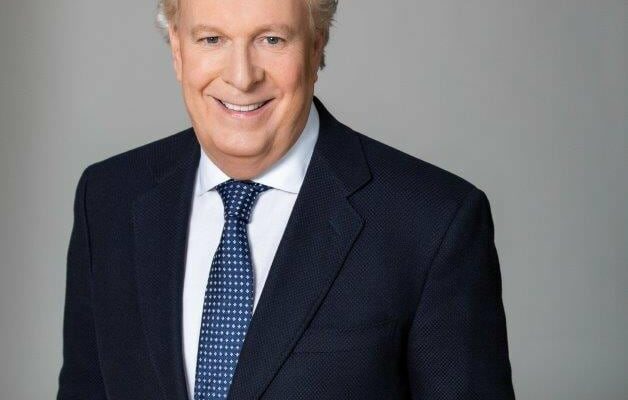A privileged observer of the neighboring superpower, Jean Charest understands the underlying trends that have been playing out in the United States for three decades. The lawyer, former leader of the Progressive Conservative Party of Canada and the Liberal Party of Quebec, was Deputy Prime Minister of Canada and Prime Minister of Quebec from 2003 to 2012. He is today associated with the law firm Therrien , Couture, Jolicoeur (TCJ). For L’Express, he comments on the American presidential campaign.
L’Express: Donald Trump’s campaign once again revolves around the idea of reviving the lost greatness of the United States. Kamala Harris takes up the theme of hope from the Obama era. How do you explain these somewhat nostalgic visions of the country?
Jean Charest: A sentence marked the history of the United States: “The shining city on the hill” [la ville qui brille sur la colline]regularly used by President Reagan during his presidency in the 1980s (1981-1989). Americans believe, rightly or wrongly, that they are the “chosen” country. The United States is a superpower, knows it and behaves as such. They make the rules and have the reflex to ignore the interests of those around them. We Canadians, as neighbors, have a privileged vantage point: we see how these Americans, fed this idea of their exceptionalism, suffered from the great recession of 2007-2008. Twelve million Americans have lost their homes, their jobs, their dignity. Donald Trump put his finger on this malaise. He named this illness and recognized those who suffered from it. The big moment of the 2016 campaign was Hillary Clinton’s statement criticizing Trump for being supported by “the pitiful.” She made the mistake of looking down on Trump voters.
So internal unease and external tensions, with growing rivalry with China?
Today, the American superpower is challenged by the emergence of a new superpower, China. Former Defense Advisor Graham T. Allison coined the term “Thucydides’ Trap”, the idea that, in human history, confrontation is inevitable between an emerging power and that which is already in place. With China, this rivalry has taken hold and calls into question the place of the United States in the world, its sense of American exceptionalism. What began as a commercial rivalry becomes a national security issue for Americans. It could have enormous consequences for the entire world.
The Trump presidency had created a lot of tension with Canada around NAFTA, the North American free trade agreement. Do you view his possible return with apprehension?
A Canadian Prime Minister has two main priorities. The first is the unity of the country. It’s still a subject. The second is to be able to manage the relationship with the United States. It is not only a neighbor, a friend, an ally, but it is also a superpower. A Canadian Prime Minister must be able to understand and understand the behavior of a country which is also a superpower. In terms of international relations, if Trump wins, the situation will be different. Donald Trump only sees the balance of power. He sees the world as an arena. In an arena, there is the winner and the loser. There are no nuances between the two. For Trump, multilateralism makes no sense, because it dilutes his influence and power. Trump wants to strengthen American power to always obtain the best deal. He’s a negotiator. If France and Europe want to have weight against Trump, they must have something to offer him, that he sees his interest in it. Seen from home, Canada is totally dependent on the United States: links represent 78% of exports, 25% of GDP. The Trump presidency therefore marked a major change of direction in the way of approaching bilateral relations, because it had to be preserved.
Two years ago, in your candidacy for leadership of the Conservative Party, you denounced a very violent campaign style, a bit American-style. What is your view on the current campaign in the United States?
America today faces extreme polarization. Since 2016 and the Clinton-Trump campaign, the intensity has not diminished, thanks to social media. This polarization has a toxic effect on American politics. It becomes a barrier to the ability to make compromises based on common interests. Everyone claims the same values, but with their own interpretation which prevents them from being able to work with the other. Hence the question of the post-campaign. After the attack on the Capitol on January 6, 2021, we can wonder if the loser will accept having lost. Will there be a transition of powers as democracy requires? If the Americans were incapable of managing the aftermath of a hotly contested election, the consequences would be incalculable. If the results are very close, we can legitimately wonder what will happen.
What would you say about Europe – Canada – United States relations today?
There is currently a lack of one or more major common projects in the political debate between the United States and the rest of the world. Ceta [traité de libre-échange] was the joint project between Europe and Canada. I am calling for a free trade agreement between Europe and “the” Americas, to provide a counterweight to China without being hostile to it. We will never be able to prevent the evolution of China, but we need a balance in relations.
.
